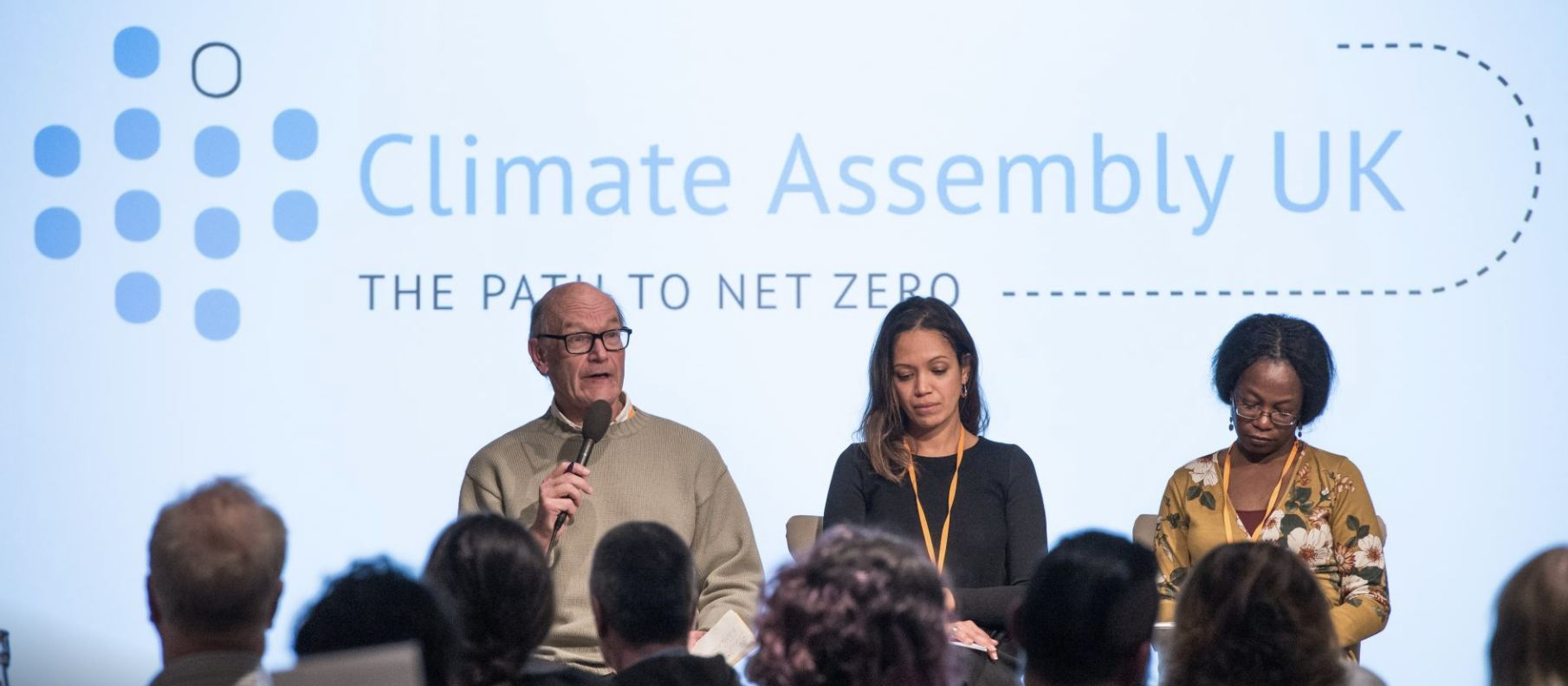The 110 Assembly Members heard an intensive series of expert speakers and presentations setting the scene and informing them for the discussions they will have over the next three weekends, before they make their recommendations to Parliament on how the UK should reach net zero.
The gathered Members then fed back a range of interesting, challenging and practical questions throughout the day in a series of Q&As , including: “Which is better for the environment – British beef or an avocado from Peru?” “What do you think should be the balance of business and government action on climate change?” “How committed are other countries to net zero?” and “Is there an argument for letting climate change happen?”

Several questions to the second panel were about fairness – about who has to do most to address climate change, and how the actions the UK takes are fairly distributed across generations and income groups. When Chris Stark, Chief Executive, of the independent advisory Committee on Climate Change was asked “who gets to decide what is ‘fair’?” his answer to the Assembly was short and clear: “You do.”
He explained: “It is for governments to define what they regard as a fair outcome, and to stand and be elected on that basis but the most fascinating thing we’re doing here today is probing further than that… What you are doing today is establishing what you regard as a fair outcome here to meet that target, and that’s evidence that we don’t have at the moment, that each of these select committees in Parliament will use when they probe government about what the Government is doing about meeting the target that it has set.”
The 110 Assembly members, specifically selected to represent the UK’s population across characteristics like region, age, and attitude to climate change before they started the process, have agreed to commit a significant amount of time and energy to hear expert evidence and deliberate on a wide range of topics such as transport, energy use in the home, agriculture and consumer choices.
Climate Assembly UK will result in a report to Parliament in April 2020. The Assembly was commissioned by six parliamentary committees to give Parliament and Government an understanding of the public’s views on how the UK should reach net zero emissions by 2050. The committees will be able to use the report to continue the dialogue and make recommendations to Government.
Members expressed their faith in the process of the Assembly and hope that Parliament and the Government would listen to their future recommendations:
I’m really happy I decided to take part. I was unsure in my expectations before coming but being here and seeing all these people, from all walks of life, representing the UK population, all so involved and willing to help make a change is really inspiring. Prior to this I had a sort of background knowledge of climate issues but I wasn’t sure how I could be involved in making a change. Of course, my hope is that at the end, Government will take this forward to put the changes in place that are needed so that people can do their bit.
I personally have been inspired by professors and Sir David obviously at dinner was awesome. I am finding it so inspiring and hope to do more, and to contribute. I am extremely concerned about climate change personally and hoping to find a way past to tackle it.
The weekend has been good, informative with a lot of opinions from different people from all around the country. At the beginning of the weekend, I was unsure if it was a crisis or not but, after a day listening about it and thinking about it, it’s almost irrelevant if it’s a crisis or not: We’re here to advise the government how to reach its target in 30 years…Taking all the emotion out of it and looking at it logically is the best way to address this.







